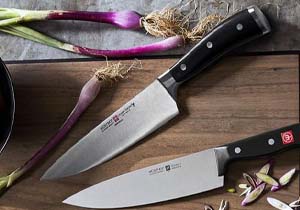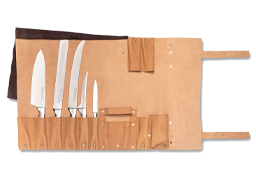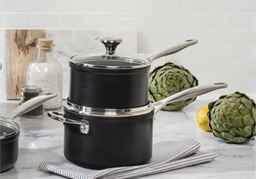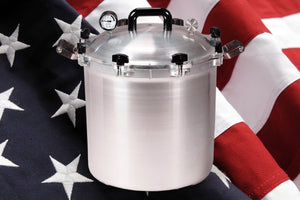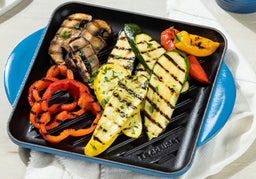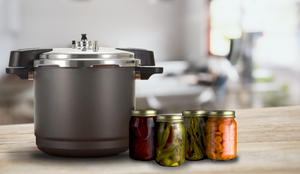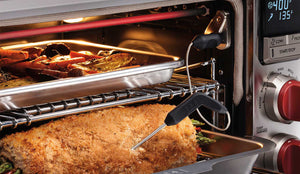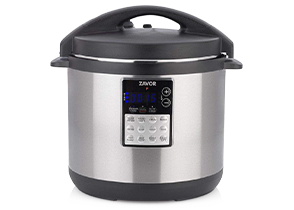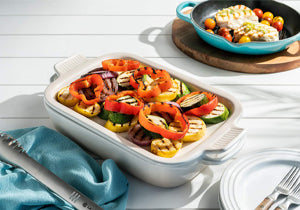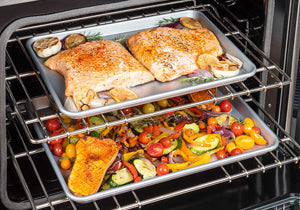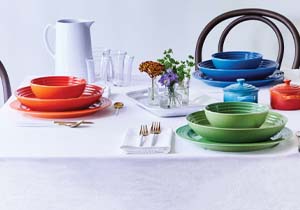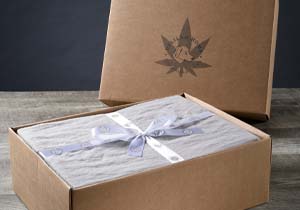KRAMER by ZWILLING 2.0 Carbon Steel Santoku Knife - 7″


Features
- Manufactured in Seki, Japan
- Straight carbon steel 52100
- Designed to Master Bladesmith Bob Kramer’s exacting specifications
- Special oil-quenching hardening process
- Traditional 3-step hand sharpening for exceptionally high sharpness
- Double-tapered blade and tang
- Grenadile wood handle with brass rivets and Bob Kramer mosaic pin
- 61 Rockwell Hardness = exceptional edge retention
- Edge angle 9-12 degrees on each side
German Engineering with Japanese Craftsmanship
Slicing, dicing, and mincing will be easy with the Kramer by Zwilling 2.0 Euroline Carbon Collection 7" Santoku Knife. Designed by Master Bladesmith Bob Kramer, this Asian-style knife features a broad blade and especially sharp cutting edge. The blade is made using a carbon-steel formulation called 52100 for remarkable strength and unmatched edge retention. Carbon steel is formulated to hold the razor-sharp, consistent edge required by modern chefs. To maintain this beautiful knife, hand wash in warm soapy water and towel dry. Made in Japan. Lifetime Warranty. Product code: 36707-183.
| Name: | KRAMER by ZWILLING 2.0 Carbon Steel Santoku Knife - 7″ |
| UPC: | 035886545673 |
| Manufacturer: | Bob Kramer |
Care of Knives
A good knife is an investment. With proper care, it will last a lifetime.
All Zwilling J.A. Henckels and the Miyabi Red Marimoto Edition knife are dishwasher safe. However, we do not recommend putting knives in the dishwasher. Banging against other cutlery or pots and pans could chip the edge. High heat and detergent can discolor and damage the handle. Instead, wipe the knife clean in your sink with a wet cloth of soft sponge with dish soap. Dry immediately. Other Miyabi and all Kramer by Zwilling knives need to be hand washed (see instructions below)
No metal is completely "stainless." Do not allow acidic foods (lemon, mustard, tomato, etc) to remain on the blade after use. This may cause tarnishing. Should the blade show signs of staining, use a non abrasive metal polish for cleaning. Carbon steel knives develop a patina over time, causing the steel will turn dark gray or black. To minimize discoloring, immediately after cutting highly acidic food, rinse, wipe the blade, and then return to cutting. Always rinse and dry carbon steel blades immediately after use.
Removing Rust Spot - If rust spots form on a carbon steel blade, they can be easily removed with an abrasive bench stone also called a "Rust Eraser" following these steps
1. Wet Rust with water 2. Rub spot with light pressure in one direction parallel to the blade's pattern. 3. Wipe the blade clean and dry with a paper towel.
Do not use tough bone with knives (except meat cleavers). Do not use knives for poking, prying, separating, or cutting semi-frozen or frozen foods. Do not use knives as screwdrivers or can openers. This is not their designated purpose and may result in bending or breaking the blade or edge of the knife. Zwilling J.A. Henckel warranty does not cover misuse.
Proper Knife Storage
Knives have to be stored in a safe place to protect the cutting edge and guarding against injuries. There are some options for storing your knives. Magnetic knife bars are convenient and safe for chefs who want to be able to view their blades and easily access then. They attach to the wall and firmly hold knives in place. A wooden knife block is the best way to store knives on the counter. The size of the block varies with the number of knives to be store. Most Zwilling J.A. Henckels blocks also have a slot for a honing steel and kitchen shears.
Cutting Surfaces
Cutting Surfaces should be smooth, easy to clean and "give" on contact with knife cuts. Zwilling J.A. Henckles recommends: wooden or bamboo cutting boards and quality polyethylene boards. Avoid surfaces that can dull or damage the knife such as china, marble, granite, tile, Formica, porcelain, stainless counter tops and glass. Remember, all cutting boards and surfaces should be cleaned thoroughly immediately after use to avoid harmful bacteria growth.

